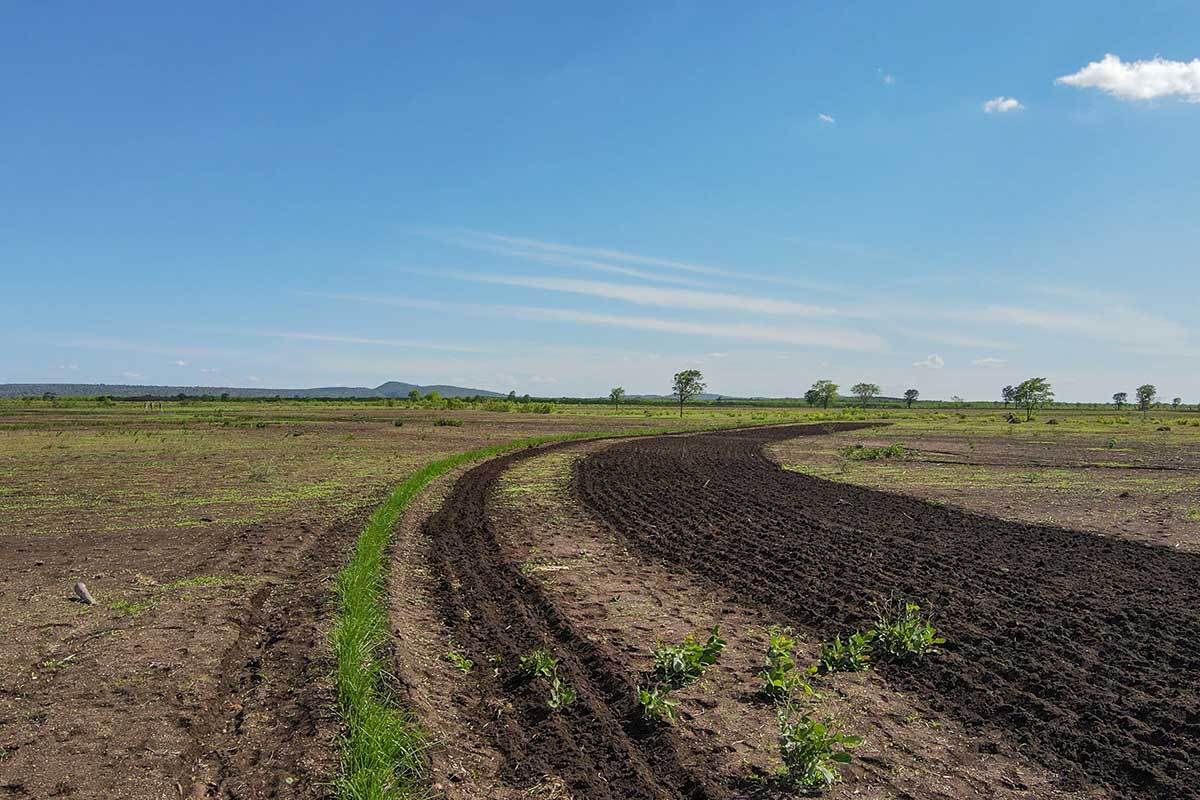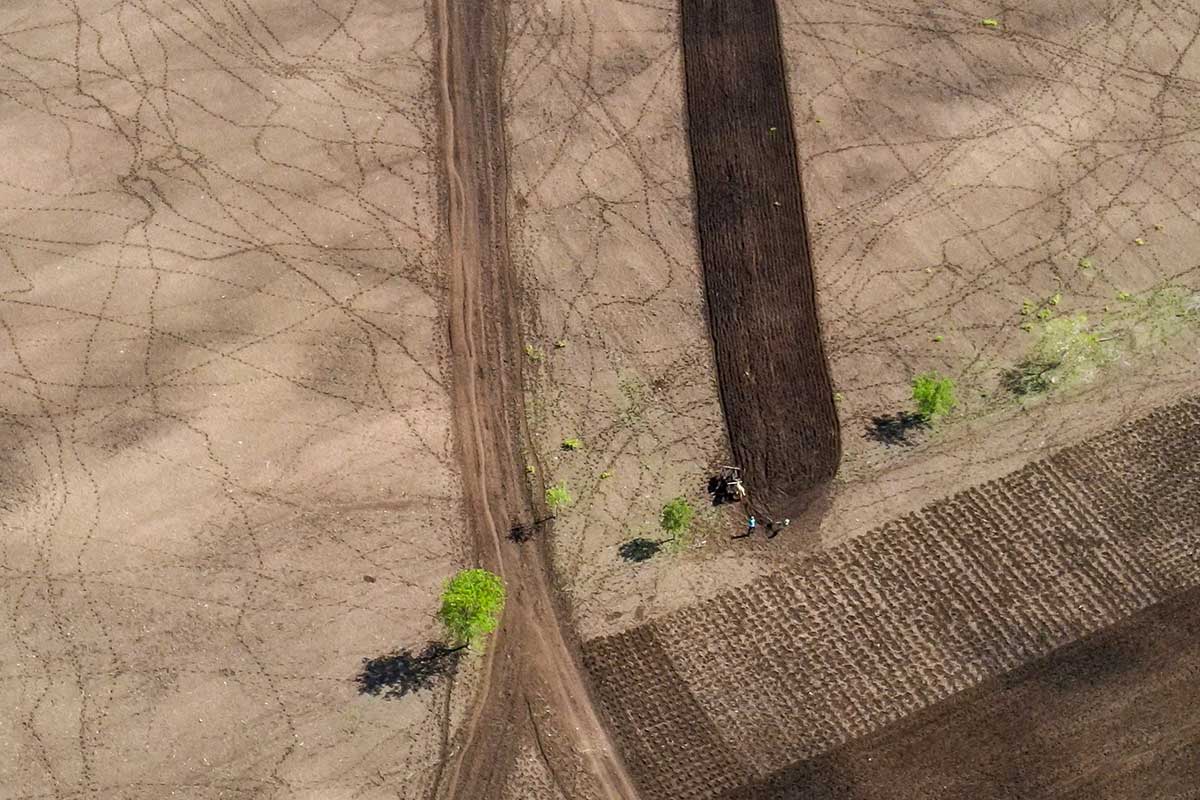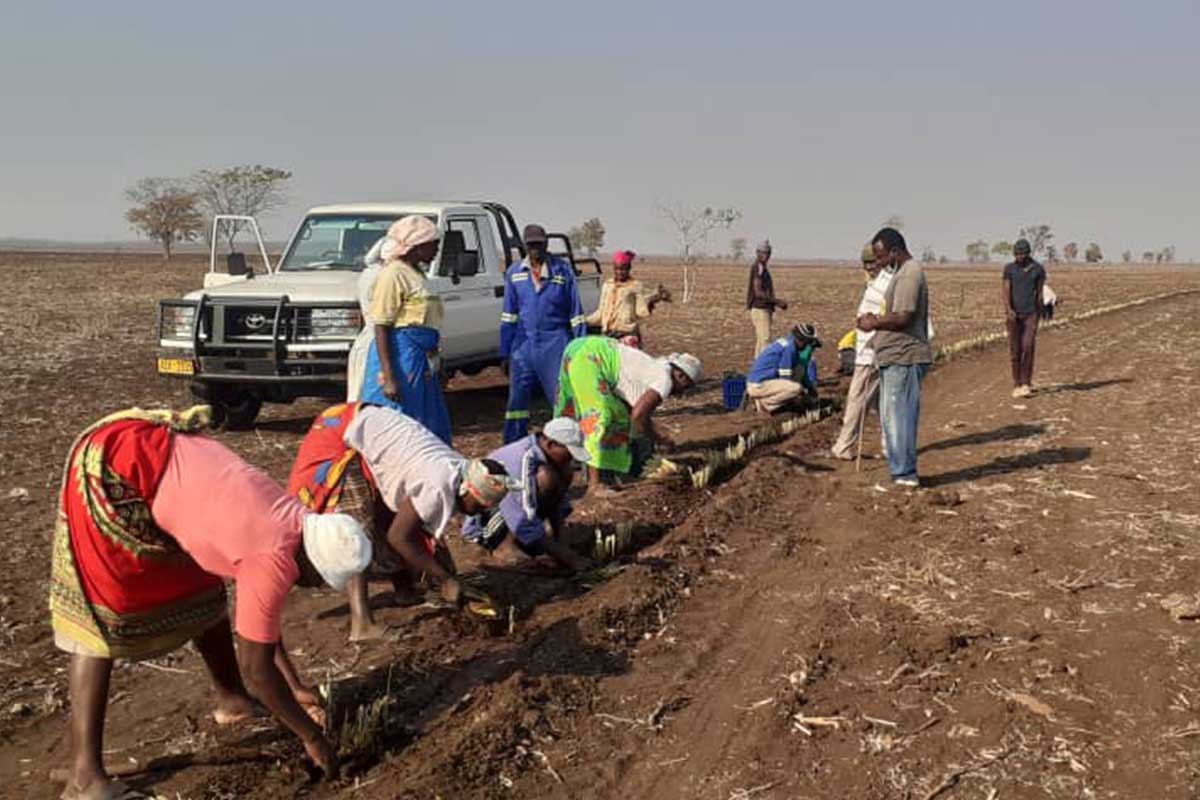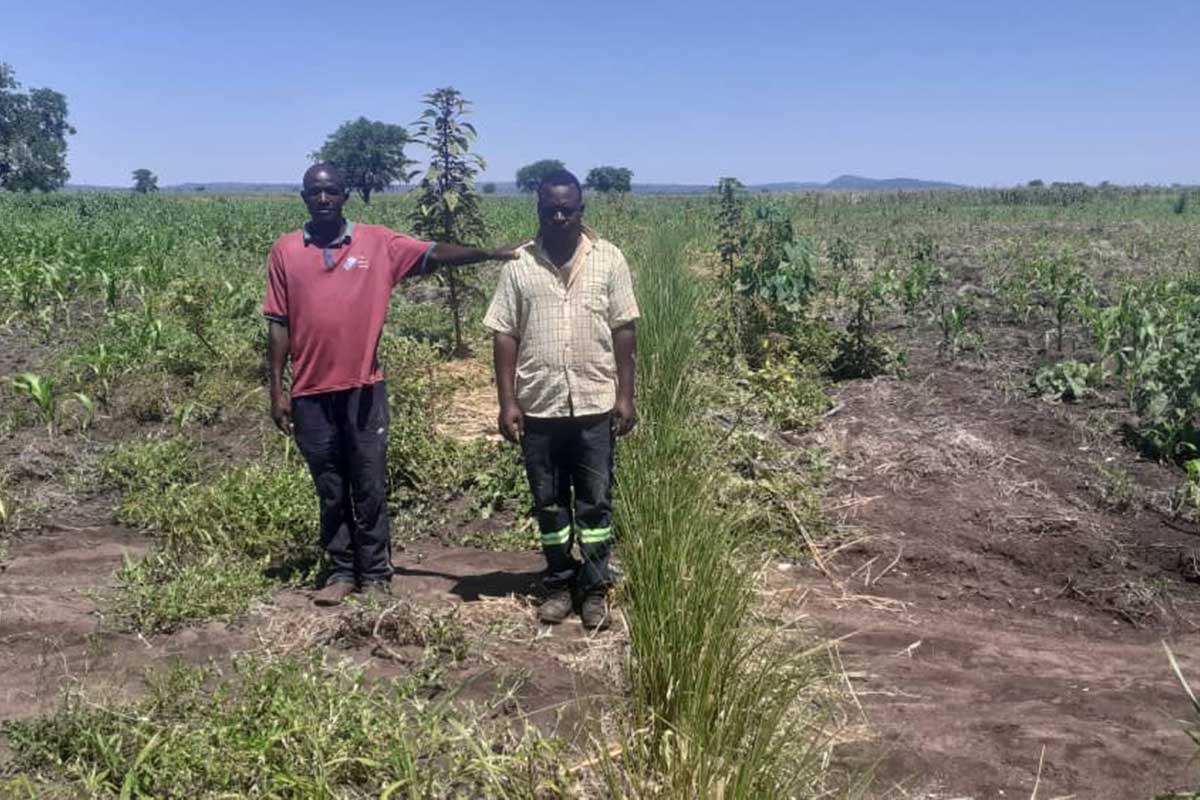Vetiver project
Thousands of people in our neighboring communities rely on their crops for survival. Due to the demand for agricultural land in these areas, large tracts of natural woodland have been cleared, causing damage to existing drainage lines and uncontrolled runoff has created an extensive network of eroding gullies. If left unchecked, soil erosion is likely to render many of these fields useless in a few years. Soil erosion negatively impacts downstream in adjacent Gonarezhou National Park and Malilangwe Wildlife Reserve where large volumes of runoff after heavy rains exit the fields and flood these areas. The runoff is highly erosive because of its large volume and velocity, and the damage is often more severe than in the fields. Dambo grasslands have already been lost – these are an important source of grass forage for white rhinoceros and Lichtenstein’s hartebeest (both endangered in Zimbabwe). Additionally, thousands of tonnes of sediment are dumped annually into rivers causing a negative impact on water quality and subsequent harmful effects on aquatic life. Malilangwe has adopted the use of vetiver grass as a tool to slow runoff and combat erosion in some of these communities. Vetiver provides a “softer” option then earth banks and other engineering works because its hedges are porous and serve to slow down the rate of flow as opposed to blocking it completely. With Malilangwe’s guidance, vetiver nurseries are owned and managed by individual community members for transplant later.
This is a project that we hope to continue for another few years so that its effects will have a far-reaching impact.









